 Limited Edition Golden Llama is here! Check out how you can get one.
Limited Edition Golden Llama is here! Check out how you can get one.  Limited Edition Golden Llama is here! Check out how you can get one.
Limited Edition Golden Llama is here! Check out how you can get one.
 Offering SPR-BLI Services - Proteins provided for free!
Offering SPR-BLI Services - Proteins provided for free!  Get your ComboX free sample to test now!
Get your ComboX free sample to test now!
 Time Limited Offer: Welcome Gift for New Customers !
Time Limited Offer: Welcome Gift for New Customers !  Shipping Price Reduction for EU Regions
Shipping Price Reduction for EU Regions
| Cat . Non | Espèces | Description du produit | Structure | Pureté | Caractéristique |
|---|---|---|---|---|---|
| SY1-HA2H9 | Human | APC-Labeled Human Syndecan-1 Protein, His Tag (Site-specific conjugation) | |||
| SY1-H5225 | Human | Human Syndecan-1 Protein, His Tag |  |
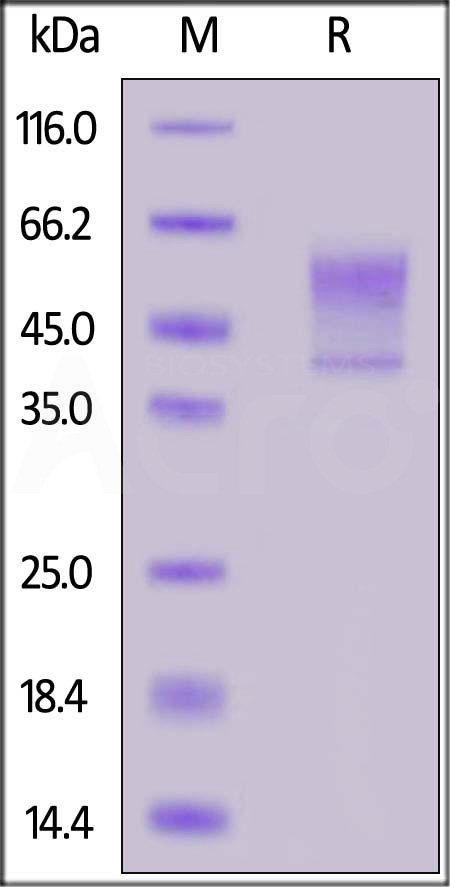
|
|
| SY1-H5253 | Human | Human Syndecan-1 Protein, Fc Tag |  |
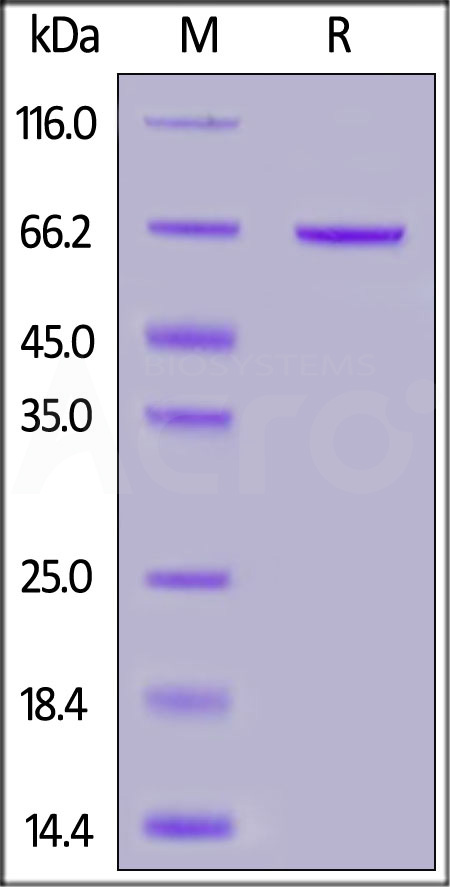
|
|
| SD1-HF228 | Human | FITC-Labeled Human Syndecan-1 Protein, His Tag |  |
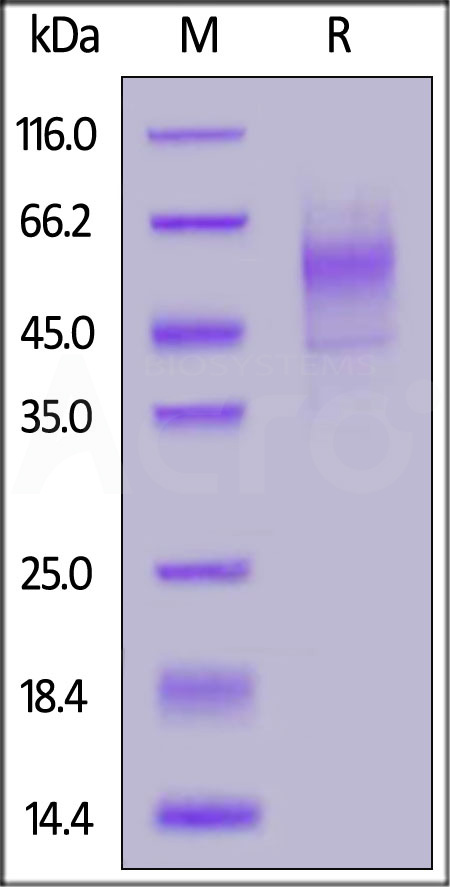
|
|
| SY1-H82F3 | Human | Biotinylated Human Syndecan-1 Protein, Fc,Avitag™ |  |
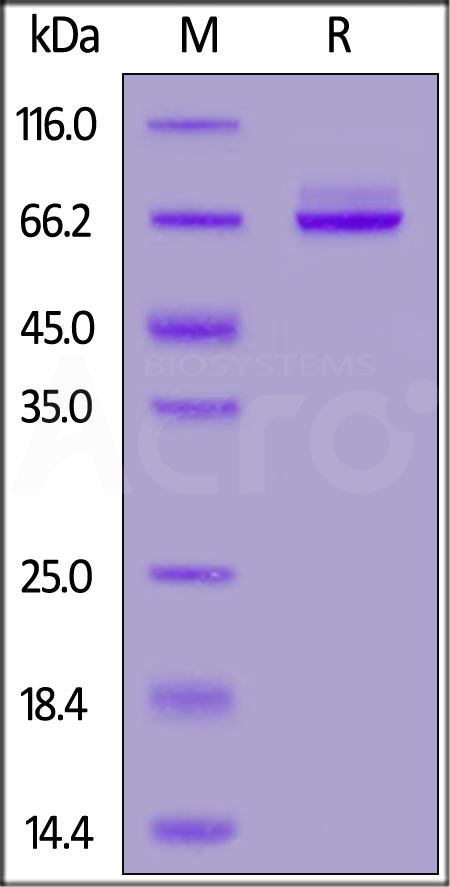
|
|
| SY1-H82E2 | Human | Biotinylated Human Syndecan-1 Protein, His,Avitag™ |  |
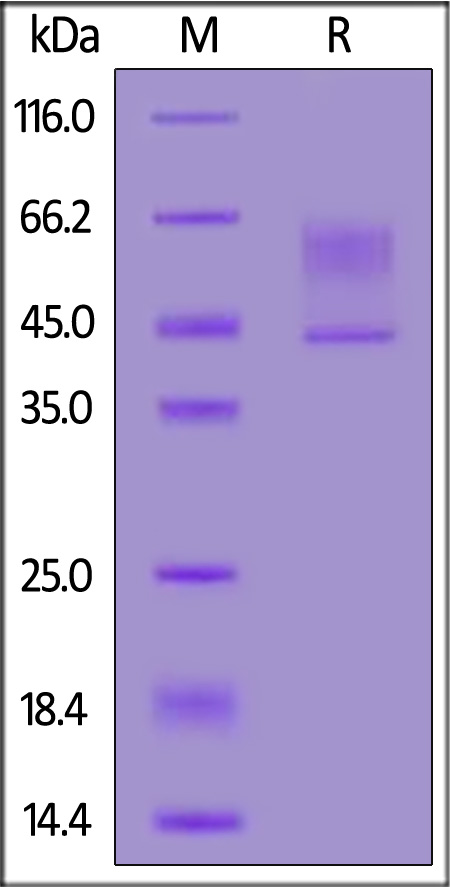
|
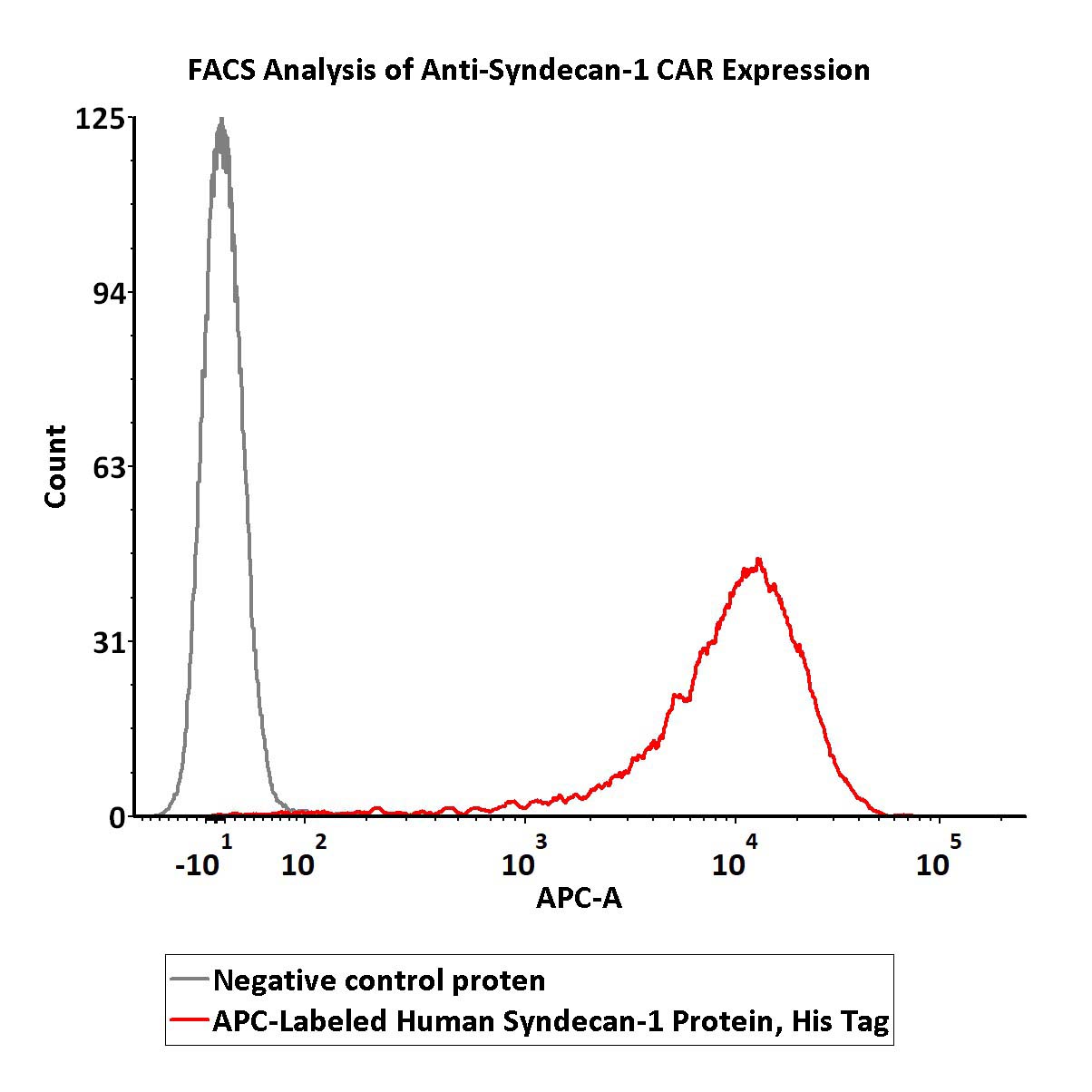
5e5 of anti-Syndecan-1 CAR-293 cells were stained with 100 μL of 1:25 dilution (4 μL stock solution in 100 μL FACS buffer) of APC-Labeled Human Syndecan-1 Protein, His Tag (Cat. No. SY1-HA2H9) and negative control protein respectively. APC signal was used to evaluate the binding activity (QC tested).
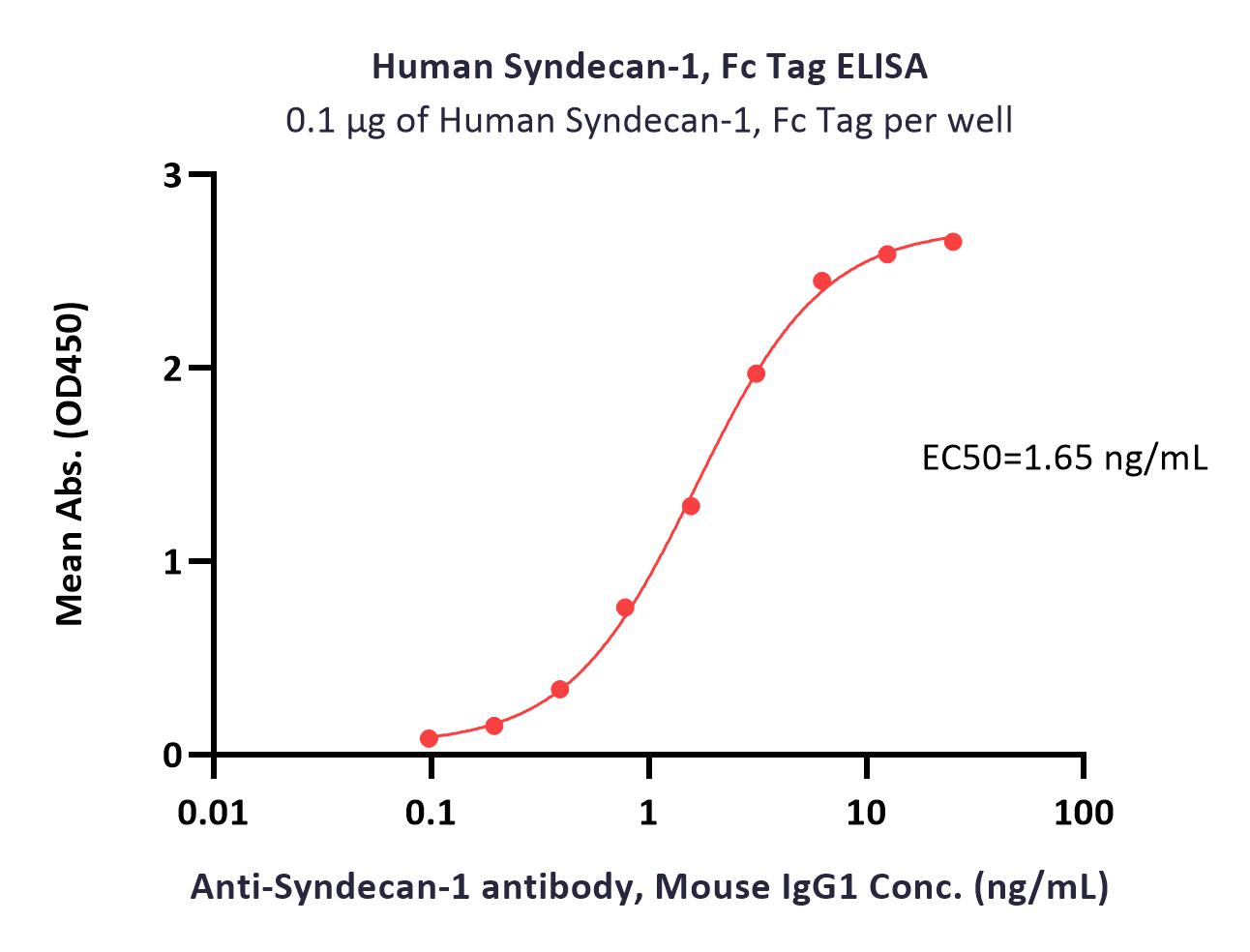
Immobilized Human Syndecan-1, Fc Tag (Cat. No. SY1-H5253) at 1 μg/mL (100 μL/well) can bind Anti-Syndecan-1 antibody, Mouse IgG1 with a linear range of 0.1-3 ng/mL (QC tested).
| Name | Research Code | Research Phase | Company | Indications | Clinical Trials |
|---|---|---|---|---|---|
| CART-138 (Chinese PLA General Hospital) | Phase 2 Clinical | Pla General Hospital | Liver Neoplasms; Ovarian Neoplasms; Pancreatic Neoplasms; Multiple Myeloma; Precursor Cell Lymphoblastic Leukemia-Lymphoma; Breast Neoplasms; Brain Neoplasms; Colorectal Neoplasms | Details | |
| ATLCAR.CD138 (UNC Lineberger Comprehensive Cancer Center) | Phase 1 Clinical | Unc Lineberger Comprehensive Cancer Center | Multiple Myeloma; Immune System Diseases | Details | |
| CART-138 (Chinese PLA General Hospital) | Phase 2 Clinical | Pla General Hospital | Liver Neoplasms; Ovarian Neoplasms; Pancreatic Neoplasms; Multiple Myeloma; Precursor Cell Lymphoblastic Leukemia-Lymphoma; Breast Neoplasms; Brain Neoplasms; Colorectal Neoplasms | Details | |
| ATLCAR.CD138 (UNC Lineberger Comprehensive Cancer Center) | Phase 1 Clinical | Unc Lineberger Comprehensive Cancer Center | Multiple Myeloma; Immune System Diseases | Details |
This web search service is supported by Google Inc.
